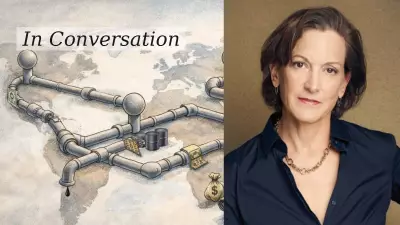
In a profound address that resonated through legal corridors, Supreme Court judge Justice DY Chandrachud articulated a powerful vision of the judiciary's role in giving voice to India's Constitution. Speaking at the second MC Setalvad Memorial Lecture organized by the Indian Council of Jurists, Justice Chandrachud emphasized that judges serve as vital interpreters who ensure the Constitution remains a living, breathing document.
The Living Voice of Constitutional Values
Justice Chandrachud delivered his compelling lecture on November 26, 2023, a date of immense constitutional significance marking the anniversary of when the Constitution was adopted by the Constituent Assembly in 1949. The event honored the legacy of MC Setalvad, India's first Attorney General, whose contributions to constitutional jurisprudence remain foundational to Indian legal tradition.
The Supreme Court judge articulated that judges don't merely apply constitutional text but actively interpret and give voice to its underlying principles. "When the Constitution speaks through its judges, it's not just about legal technicalities," Justice Chandrachud explained. "It's about ensuring that constitutional morality and values permeate our society and governance."
Judicial Interpretation as Constitutional Dialogue
Justice Chandrachud highlighted the dynamic nature of constitutional interpretation, emphasizing that judges engage in an ongoing dialogue with the document's text and spirit. He stressed that this interpretive role becomes particularly crucial when addressing contemporary challenges that the Constitution's framers might not have specifically anticipated.
The lecture explored how constitutional provisions gain contemporary relevance through judicial interpretation. Justice Chandrachud noted that fundamental rights and directive principles require constant interpretation to address evolving social realities and technological advancements that shape modern Indian society.
He particularly emphasized the judiciary's role in protecting constitutional values during times of social and political transformation. "The Constitution speaks through its judges to ensure that individual rights and human dignity remain protected even as the nation progresses and transforms," Justice Chandrachud asserted.
Constitutional Morality in Contemporary Context
The Supreme Court judge elaborated on the concept of constitutional morality as a guiding principle for judicial decision-making. He explained that this extends beyond literal interpretation of constitutional text to encompass the broader philosophical framework that underpins India's democratic structure.
Justice Chandrachud addressed how constitutional values must inform judicial approaches to emerging legal questions, including those related to:
- Digital privacy and data protection
- Gender equality and LGBTQ+ rights
- Environmental protection and climate justice
- Social justice and affirmative action
He emphasized that the Constitution's voice, when channeled through judicial interpretation, must reflect India's diverse social fabric while maintaining commitment to fundamental rights and democratic principles.
The Setalvad Legacy and Constitutional Advocacy
The lecture paid tribute to MC Setalvad's pioneering role in shaping India's constitutional discourse. Justice Chandrachud noted how Setalvad's advocacy helped establish important constitutional principles during the formative years of Indian jurisprudence.
He reflected on how contemporary judges build upon this foundation, ensuring that constitutional interpretation remains responsive to current challenges while staying true to the document's core values. The Indian Council of Jurists, as organizer of the memorial lecture, continues this tradition of fostering serious constitutional discourse among legal professionals and scholars.
Justice Chandrachud's address comes at a significant moment in India's constitutional journey, as the judiciary faces complex questions about the interplay between traditional values and modern rights frameworks. His insights provide important guidance for understanding how constitutional interpretation evolves to meet contemporary needs while preserving foundational principles.
The lecture reinforces the vital role of an independent judiciary in maintaining constitutional supremacy and ensuring that the document remains relevant across generations. As Justice Chandrachud powerfully concluded, when judges give voice to the Constitution, they ensure it continues to speak to and for all Indians.




